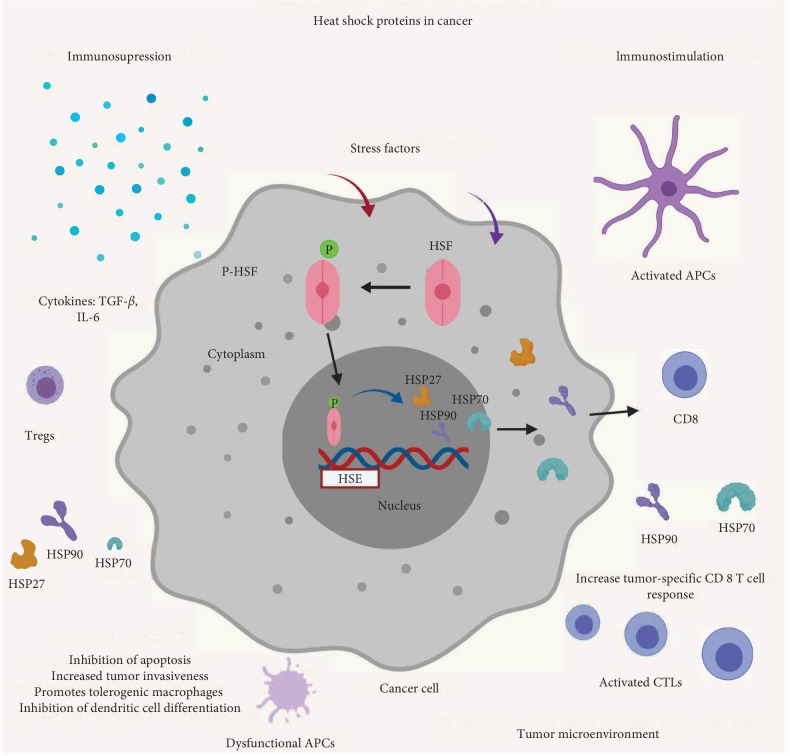Figure 1.
Heat shock proteins in cancer. Cancer cells are exposed to several stress factors from the extracellular milieu of tumor microenvironment. These stress factors activate heat shock transcription factors (HSFs) by facilitating their dissociation from heat shock proteins and phosphorylating them. The heat shock transcription factors are then translocated into the nucleus where they bind with heat shock elements (HSE) and initiate the transcription of heat shock proteins like HSP27, HSP70, and HSP90. The HSPs are exported into the tumor microenvironment modulating the immune response against cancer cells. In immunosuppressive conditions, the HSPs enhance the survival and proliferation of cancer cells by activating their cellular protection machinery. The HSPs may also stimulate the anticancer immune response under optimal conditions, thereby maintaining a fine balance between cell death and survival.

